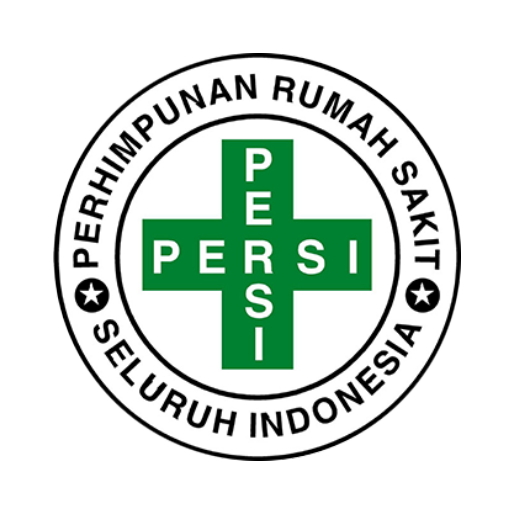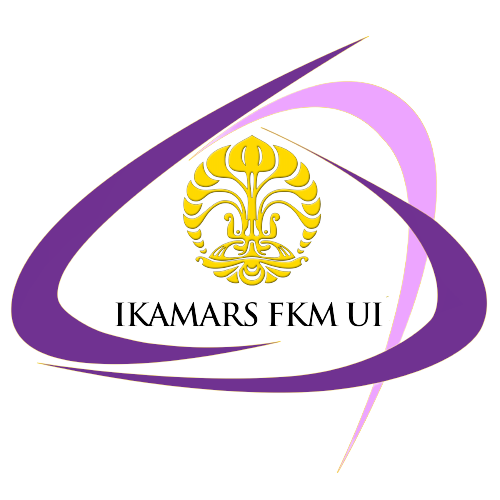Editorial Policies
- » Focus and Scope
- » Section Policies
- » Peer Review Process
- » Open Access Policy
- » Archiving
- » Publication Ethics
- » Indexing
Focus and Scope
Jurnal ARSI (Administrasi Rumah Sakit Indonesia) was initiated by the Center for Health Administration and Policy Studies (CHAMPS) Faculty of Public Health, University of Indonesia (FKM UI) and is currently managed by the Department of Health Administration and Policy FKM UI. The publication of the Jurnal ARSI (Administrasi Rumah Sakit Indonesia) was carried out in collaboration with the Indonesian Hospital Association (PERSI) and the FKM UI Hospital Management Association (IKAMARS). As a scientific journal, Jurnal ARSI (Administrasi Rumah Sakit Indonesia) has a focus on service administration and management in hospitals in Indonesia. The articles or scientific papers published in this journal include original research, case studies, reviews or conceptuals, each of which carries the pillars of corporate governance, clinical governance, or both (bridging).
Section Policies
Articles
Peer Review Process
Articles published in this journal could be in the form of original articles and invited articles (brief reports, case reports, opinion articles, commentaries, editorials, and correspondence). All manuscripts will be subject to editorial review and double blind peer reviews. Papers that do not meet the criteria for inclusion or are otherwise inappropriate will be rejected without external review. Manuscripts judged to be appropriate for inclusion in the Jurnal ARSI (Administrasi Rumah Sakit Indonesia) are sent for formal review. Typically two experts review each paper, however they may be subjected to more advanced scrutiny if more specialised advice is needed in regards to statistics or techniques. Based on the reviewers comments, the editors will then accept or reject the papers with the following conditions: (1) Accept and publish, with or without editorial revisions, (2) Invite the authors to revise their manuscript and address specific concerns, (3) Reject the article outright, typically on grounds of lack of originality, insufficient conceptual advancements or major technical and/or interpretational problems. Any changes made to the original manuscript will be clearly stated for the authors to review. The authors should carefully examine sentence structure, the completeness and accuracy of the text, references, tables, and graphic contents of the revised manuscript. The Editor-in-Chief will have the final decision regarding acceptance or rejection of manuscripts. The Editorial Board reserves the right to edit articles on all aspects of style, format, and clarity. Manuscripts with excessive errors in any aspect, i.e. spelling or punctuation, will be returned to authors for revision before resubmission or may be rejected entirely.
The Jurnal ARSI (Administrasi Rumah Sakit Indonesia) welcomes recommendations from reviewers regarding edits to prospective manuscripts, however in the event of conflicting advice from reviewers, the editors will make a final decision on the course of action. Editors will evaluate the reports from each reviewer, relevant comments made by the authors, and any other information that may not be available to either party before reaching a decision. The Jurnal ARSI (Administrasi Rumah Sakit Indonesia) primary responsibilities are to our readers and the scientific community at large, and in deciding how best to serve them we must assess the validity and reliability of each paper against the many others also under consideration. We may return to reviewers for further advice, particularly in cases where they disagree with each other, or where the authors believe they have been misunderstood on certain points. Therefore reviewers should be willing to provide follow-up advice when requested. Editors are aware that reviewers may be reluctant to be drawn into prolonged disputes and will keep consultations to the minimum we judge necessary to provide a fair hearing for the authors. When reviewers agree to assess a paper, the editors consider this as a commitment to review subsequent revisions if necessary and the editors will not resubmit a paper back to the reviewers if it appears that the authors have not made a serious attempt to address the initial concerns. The Jurnal ARSI (Administrasi Rumah Sakit Indonesia) take reviewers' feedback and criticisms seriously, in particular editors are very reluctant to disregard technical criticisms. In cases where one reviewer alone opposes publication, editors may consult the other reviewers as to whether he or she is applying an unduly critical standard. Editors may occasionally bring in additional reviewers to resolve disputes however we prefer to avoid doing so unless there is a specific issue, for example a specialist technical problem.
Open Access Policy
This journal provides direct open access to its content on the principle that making research freely available to the public supports greater global exchange of knowledge.
Archiving
The journal uses the LOCKSS system to create a distributed filing system among participating libraries and allows those libraries to create permanent archives of the journal for preservation and restoration purposes. More...
Publication Ethics
We follow the Recommendations for the Conduct, Reporting, Editing and Publishing of Scientific Work in Medical Journals issued by the International Committee of Medical Journal Editors (ICMJE) and the Code of Conduct and Best Practices for Journal Editors issued by the Committee on Publication Ethics (COPE)
All of our publishing activities are guided by the following core ethical values:
- Authorship and contributors: All authors and co-authors must meet the authorship criteria and ensure appropriate credit is given in their manuscript. Authors are encouraged to make clear statements of contribution to their work.
- Originality: Authors must guarantee that the submitted manuscript is the original written by them. The work has not been previously published or is being considered for publication elsewhere. If the work and/or words of others are included, they must be properly cited or quoted.
- Data access and citations: Authors may be asked to provide raw data relevant to the paper for editorial review. They should also be prepared to provide public access to that data. Data must be cited in the same way as article, book, and web citations and authors are required to include data citations as part of their reference list.
- Acknowledgment of sources: Authors must fully acknowledge any work in the manuscript that has been contributed by others.
- Declaration and conflicts of interest: All submissions must include disclosure of all relationships that could be viewed as potential conflicts of interest.
- Reporting standards: Authors of original research papers must provide an accurate account of the work performed as well as an objective discussion of its significance.
- Human and Animal Rights: For research involving experiments involving humans, a compliance statement is required to demonstrate that procedures were followed according to the ethical standards of the committee in charge of human experimentation (institutional and national). For studies reporting experiments involving animals, authors are asked to indicate whether institutional and/or national guidelines for the care and use of laboratory animals have been followed.
- Research ethics: Research that we publish must have obtained approval from the Institutional Review Board (IRB)/Ethical Review Unit in the unit or institution where the researcher takes shelter and if possible, informed consent. Clinical trials must have been registered with the clinical trial registry, according to local and international standards
- Author ethics statement: Authors are responsible for all aspects of their work (including full data access, data integrity and accuracy of data analysis) in ensuring that questions related to the accuracy or integrity of any part of the work are properly investigated and resolved
As an important issue, publication ethics must be clear to improve research quality. ARSI adjusts to meet ethical standards for both publishers, editors, authors, and reviewers. To uphold these ethical standards, publishers have no right to interfere with content integrity and only support timely publishing.
Here are the ethical standards for editors, authors, and reviewers.
Editors
- The Editor is responsible for every article published in Journal of ARSI.
- Editor helps the authors follow the guidelines for authors
- The editors may communicate with other editors or reviewers in making a final decision.
- Editor assess the manuscript publication objectively, regardless the author's racial background, religion, gender, seniority, ethnicity, political beliefs, institutional affiliation or nationality. The editor must relinquish his/her duties if there is a potential conflict of interest.
- The Editor must ensure that the document which is sent to the reviewers do not contain information on the author and vice versa.
- The editor's decision must be notified to the author along with the reviewers' comments, except which contain offensive or libelous statements.
- Editors should respect the request of the author that the order is not subject to review by any other person for any reason.
- Editor and all staff must ensure the confidentiality of the submitted manuscript.
- If there is a suspicion of error or dispute in writing, Editor solves it by using the COPE as guide.
Reviewers
- Reviewers comment on the possibility of errors in ethical research and publications.
- Reviewers should complete the job on time and notify the Editor if they cannot finish the job.
- Reviewers must maintain the confidentiality of the manuscript.
- Reviewers should not be receiving and reviewing the manuscript if there is a potential conflict of interest between them and the authors.
Authors
- The author ensures that the material to be published have not been published and sent to another place simultaneously.
- Authors must ensure the authenticity of their research and they have cited the others opinions correctly in accordance with the reference format.
- The author is not involved in plagiarism.
- 'Salami' publication is prohibited in Journal of ARSI.
- Authors must follow the criteria described in the writing guideline for the authors of Journal of ARSI.
- Authors are not advised to publish any personal information that may make identity of the patient recognizable in the form of the description section, photograph or genealogy. If photographs of patients are very important and indispensable as scientific information, the authors should have received approval in written form and has clearly stated it.
- In the case of experiments on humans, the authors state that the study was in accordance with the ethical standards of the Helsinki declaration, which leads the human experiment. If there are doubts raised whether the study took place in accordance with the declaration, the author should explain it. In the case of experiments on animals, the author has certified that the author has followed the guidelines and abroad with regard to animal experiments in the laboratory.
- Authors must submit the data and details to the editor, if suspected falsification or fabrication of data.
- The authors should explain everything that can give rise to a conflict of interest such as employment, research costs, consulting fees, and intellectual property on guidelines for Journal of ARSI’s authors.








